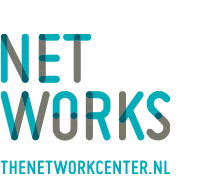On March 25th – 29th the 15th YEP (Young European Probabilists) workshop took place in Eindhoven, focusing on information diffusion on networks. Network diffusion processes are present in many real-life scenarios.
Possible examples are epidemic spreading, viral marketing and power blackouts. The topic attracts researchers from wide ranges of research fields, such as mathematics, physics, computer science, and social sciences. Therefore, the aim of the workshop was to bridge these scientific communities, by focusing not only on probabilistic aspects of information diffusion, but taking the algorithmic and application perspective into account.
In three tutorials, speakers explained their field of expertise in three hours to the audience. Frank Ball discussed his work on epidemic spreading and efficient vaccination strategies. One interesting vaccination strategy is acquaintance vaccination. There, instead of vaccinating a random fraction of the population, you vaccinate random friends of a random fraction of the population. Because these random friends are more popular than an average person, this vaccination strategy is much more efficient than vaccinating a random fraction of the population.
Mia Deijfen then talked about competitive spreading processes. If two competing products spread together on the same network, which product will be the most successful? This is a mathematically difficult question, but it also has its applications in marketing: how can you make sure your product becomes more successful than the competitor’s product?
The third mini-course was given by Renaud Lambiotte. He explained the usefulness of studying random walks on networks. For example, when you move randomly on a network, you may expect to spend a lot of time in densely connected groups in the network. This is very useful if you want to find these groups: you can search for parts of your network were a random walker gets ‘stuck’.
The algorithmic perspective on information diffusion was provided in one of the research talks by Wei Chen, a researcher at Microsoft Research Asia. His work focuses on providing methods to find the most influential spreaders in a network. These people are the influencers on social media that make almost anything go viral, or the people you would like to vaccinate when a virus spreads across the network.
Beside these talks, many other junior and senior researchers shared their research in presentations ranging from machine learning to networks that change over time to biological applications of information diffusion. These presentations certainly achieved the goal of learning about the wide ranges of research lines on information diffusion. With the room being completely booked and lively discussions after the talks, we look back on a very successful workshop.








